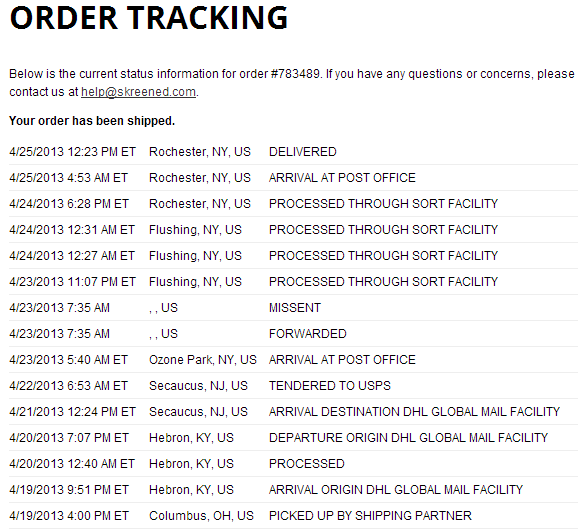The Applicant Tracking Number
Last week I had a post about the limited differential and competitive advantage that most companies can realize from the implementation of commercial off the shelf software solutions that are readily available (and often implemented) by their rivals as well. The premise was (and still is) that if and when all the largest firms in an industry segment implement the same ERP or Supply Chain or Applicant Tracking System, then it is generally likely that none of them will have executed so much better than their competitors that they gain a meaningful advantage.  What would an application history look like?
What would an application history look like?
The point of the piece was that real and lasting advantage and long-term value comes from actually using technology to create something entirely new and not easily reproducible by competitors or by the software companies themselves, that would just try and sell this innovation to all the firms in the space. The example I used to try and make this point was the FedEx shipment tracking number - the concept, the associated software and hardware, and the popularization as both an internally and externally valuable data point that was pioneered by the shipping firm over the last few decades. With the package tracking number suddenly the shipping business was transformed - every concerned stakeholder could know the current status and history of every package at all times. Amazing.
Why revisit last week's post?
Because in the comments the Recruiting Animal made a tremendous observation, (repeated below)
Steve, are you saying that big companies should give applicants a tracking number for their resumes? Sounds like a great idea.
I actually wasn't thinking about a tracking number for applicants, similar to the FedEx shipment tracking number, but it is an obviously great idea from Animal. Sure, most ATS at this point provide a way for applicants to log in and get a 'status' about the state of their application, and some even provide email notifications about status changes, but these are almost never as detailed and informative as they could be. They will let an applicant now their application is 'received' or they are in 'first interview' status or if it is 'no longer being considered', but those statuses or stages can be pretty broad and vague.
But what actually happens to an application is much more rich, detailed, and nuanced. Applicants are screened, they are reviewed by potentially a dozen people, and for varying amounts of time. Their details are forwarded, they are classified or tagged. Then if they interview, notes are taken about them and shared. References may be called and a background check might be done. These processes will sometimes kick off more notes, tags, and internal conversations. An offer could be extended, a counter offer made, and additional data points created. You get the idea, in an active and thorough process lots more data is created than what is shared (and not even always shared), with applicants.
But if as Recruiting Animal suggests, a job application had a tracking number similar to the FedEx shipment number, and the organization was brave enough to make the applicant tracking data visible and available to applicants, then questions, doubt, and the basics of candidate feedback would be solved. Just like you know where your books from Amazon are at any point in the process, and who participated in the process, and how long it took for each step, an applicant tracking number could let the applicant know when their resume was opened and reviewed and forwarded. The applicant would now truly know how long from the time of resume submission to when their credentials were even assessed, and how long after that the first critical 'Yes/No' decision was taken by the recruiter.
Remember the famous 'recruiters look at a resume for 6 seconds' story? Well with an applicant tracking number potentially we'd really know how true that was.
They would know just about everything they would want to about the process. And all it would take would be a clever application of a new kind of tracking number technology - meant for candidates and not just stuff bought online.
What do you think? Does anyone actually do something like this today?
Or is it too transparent for most organizations to consider?
 ATS,
ATS,  Recruiting,
Recruiting,  Technology tagged
Technology tagged  ATS,
ATS,  Recruiting,
Recruiting,  Technology,
Technology,  applicants
applicants  Email Article
Email Article 
 Print Article
Print Article 

